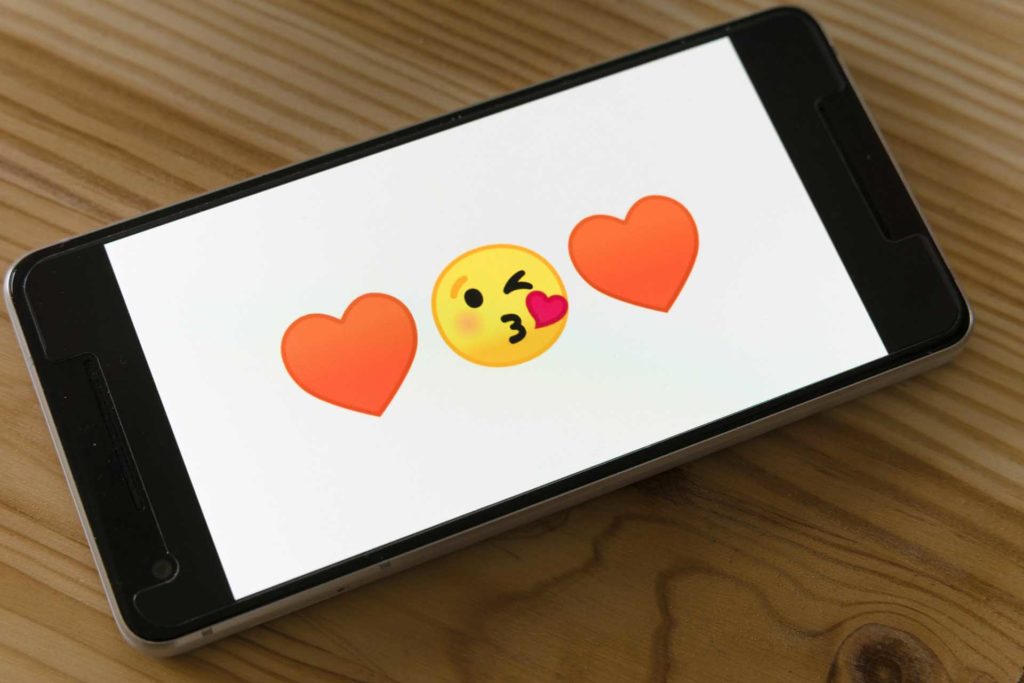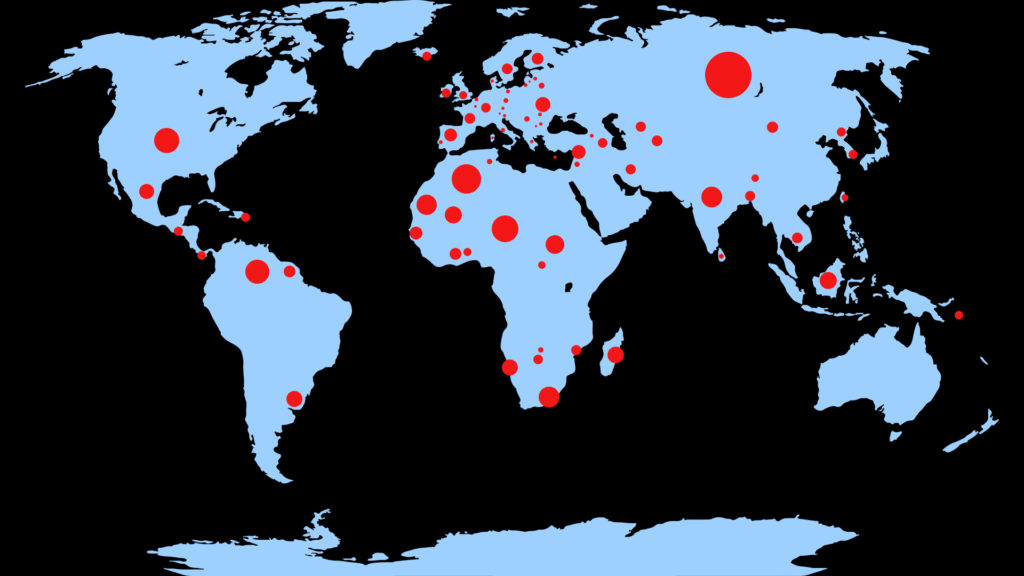Balancing innovation and safety in online dating with generative AI
May 6, 2024 | UGCArtificial intelligence may be making all the headlines these days, but for brands in the online dating industry, it’s been a staple tool for many years. AI has transformed the online dating scene from simple matchmaking services to complex platforms with advanced algorithms and robust safety features, such as image analysis and fraud detection. The latest shift towards generative AI, however, marks a significant evolution from static rule-based models to dynamic, interactive systems that aim to enhance user engagement and improve the overall dating experience.
But as we know all too well, generative AI has its inherent dangers. In March, our VP of Trust & Safety, Alexandra Popken, spoke at the Global Dating Insights Conference in New York City about both the benefits and risks of incorporating GenAI features into online dating platforms, and how to strike the right balance with better generative AI content moderation.
The Bright Side of GenAI in Online Dating
While news publications – and even we in the content moderation industry – often highlight the dangers posed by generative AI, it’s not all doom and gloom. In fact, GenAI is on the verge of transforming the online dating scene by tackling some of the biggest headaches people often face with dating apps: writing an engaging profile about yourself, for example.
As simple as it may sound, when tasked with bio creation, many users find this task too awkward and cumbersome and churn from the app. GenAI, however, is poised to make this and other in-app aspects of the user experience that much easier. Match Group, for example, is spending a whopping $30 million on AI innovation this year to spice up its online dating experience. The company is testing and rolling out features that do everything from crafting your bio to selecting your best photos.
Bumble is using GenAI to review people’s profile data and help initiate personalized conversation starters. They know ice breakers can be tricky and they’re leveraging this technology to help, well, break the ice.
The Dark Side of GenAI in Online Dating
At the same time, the doomsayers aren’t completely wrong. While GenAI can do some pretty cool things, it’s not all roses. Scams and fraud are already big headaches in dating apps, and with GenAI, fraudsters now have new tools that enable them to create even slicker fake profiles and more convincing scammy communications. “With regard to the downsides of novel technology, French philosopher Paul Virilio said it best,” notes Alex. “When you invent the ship, you also invent the shipwreck; when you invent the plane you also invent the plane crash; and when you invent electricity, you invent electrocution.”
Catching these types of romance scams has always been tough, and these new AI-enhanced deceits make it even more difficult. WebPurify, however, is on the front lines with both human moderators and AI tech trying to spot these fakes by looking for things like odd phrasing or images that seem “off”. WebPurify also employs an AI image model that’s designed to identify synthetic media.
But even with the best in the business on the job, it’s a constant chase. Perfect moderation is a tall order, and as fast as we patch up one hole, fraudsters find a new trick. It’s a continuous game of cat and mouse, reminding us that every shiny new tech advancement can come with a sting in its tail.
Balancing Act: Trade-offs of GenAI in Online Dating
One of the most significant trade-offs in using GenAI is the potential impact on genuine human connection. There’s well-placed worry over the ways it changes our connections. Sure, GenAI can smooth over those initial awkward moments by whipping up snappy bios and clever chat lines, but there’s also a downside. This automated assistance just might be driving a wedge in our human connections. The fact of the matter is that real relationships have their clunky, awkward moments, and that’s often where the magic happens – those genuine, unscripted occasions are what typically bond people.
Then there’s the trust issue. As GenAI gets more involved in our chats, it’s getting trickier to tell if we’re bantering with a human or chatting up a bot. According to a study by WebPurify, a whopping 92% of people feel that GenAI shakes up their trust in what they see online. In the dating scene, where trust is everything, not knowing if you’re dealing with a person or a program is particularly problematic for all parties. “People are already skeptical of this tech,” says Alex, noting that “human connection should be anything but artificial.” She adds that platforms must tread lightly as they implement new features into their user interfaces.
Strategic Responses and Preparations
So how are dating companies tackling these GenAI challenges? Most brands understand that it’s not just about rolling out the coolest new features; it’s also important to keep their consumers safe. Companies are getting strategic, weaving responsible AI use right into their core principles. They’re being upfront with users about how AI is being sprinkled into the mix, which is key for keeping trust in the tech.
On top of that, beefing up one’s content moderation is a necessity. Where possible, brands should be making a serious investment in moderation to make sure that when AI steps out of line, there’s a safety net there to catch any falls.
But there’s another element to all this: educating daters themselves. By showing users how to spot AI-generated content and giving them the tools to flag anything fishy, dating apps can turn their users into an active line of defense. It’s about empowering everyone to help keep the platform a safe space to find love, making sure that behind every swipe, there’s a sense of security.
Legislation and Regulation: Global Responses
The regulatory landscape for AI is also evolving, and President Biden’s Executive Order on AI in 2023 suggests the government is keen to impose guardrails.
Over in Europe, the EU recently rolled out an AI Act, which covers pretty much anyone who’s dabbling with AI – the providers, users and distributors alike. This act sorts AI systems by risk level and sets the rules to keep things innovative yet safe. The penalties for non-compliance can be as high as 7% of global revenue, illustrating the seriousness with which these regulations are being enforced.
While the US is still figuring out the best approach, it’s clear that legislators are potentially gearing up to keep pace with Europe. This means that dating apps, no matter where they operate, have to juggle a variety of regulations. The differences in regulatory approaches can significantly impact how dating apps operate globally, requiring them to navigate a complex patchwork of laws.
Looking Forward
As the online dating industry continues to integrate elements of GenAI, balancing innovation with safety will be crucial. The potential of GenAI to transform user experiences is undeniable, yet the risks it brings cannot be overlooked. By adopting a proactive approach to innovation, focusing on robust safety measures, and navigating the evolving regulatory landscape, dating companies can ensure that the future of online matchmaking is not only successful but also secure.
This balanced approach will be essential as we move forward, ensuring that while we embrace the possibilities of AI, we remain vigilant about the fundamental human elements that make dating such a uniquely personal experience.
“There is incredible potential for this technology to make the dating experience more enjoyable and fulfilling for users – but additionally, fake profiles and scams are certainly going to exacerbate challenges that these platforms are facing,” Alex says. “Founders need to be investing in both the innovation and the safety sides of this technology.”

